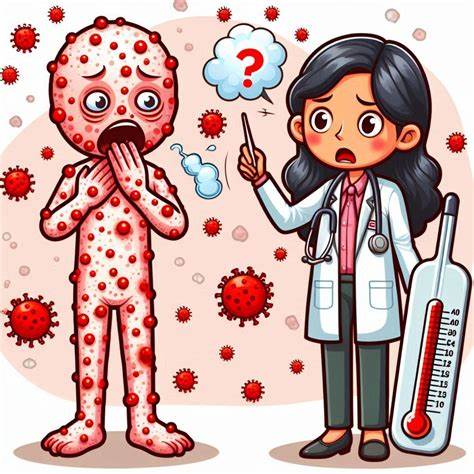Psychosexual Health
At MyHealthnet, we recognise that parents play a crucial role in supporting their children’s well-being. Whether you’re navigating the challenges of parenting or seeking information to guide your child, we offer a range of resources to empower you:
- 1. Free Health and Well-Being Advice: Our platform provides valuable advice on sexual health, relationships, and emotional well-being. From puberty to parenting, we’ve got you covered.
- 2. Confidential Counselling Service: If you’re facing parenting-related concerns or need someone to talk to, our trained counsellors are here to listen. We offer a safe space for discussing any issues you may be experiencing.
- 3. Direct Health Promotional Activities: MyHealthnet actively promotes community health through workshops, seminars, and outreach programs. We cover topics such as safe sex, contraception, and healthy relationships.
Key Areas of Support for Parents:
- 1. Safe Sex and Contraception
- Talking to Your Teen: When your child enters a new relationship, discussing sexual health and contraception is essential. Encourage open communication and emphasise the importance of using condoms until both partners have been tested for STIs/STDs and are using another form of contraception.
- Sexual Health Tests: Regular testing is crucial for preventing the spread of sexually transmitted infections. We offer free testing for HIV, chlamydia, gonorrhoea, syphilis, herpes, hepatitis, and more. Contact us for information on clinics near you.
- 2. Healthy Relationships
Promoting Well-Being: Good relationships contribute to overall health and happiness. Encourage your child to build healthy connections with others. If you suspect any abusive behaviour (verbal, physical, or sexual), seek help from reliable adults or contact us confidentially.
- 3. Personal and Professional Development
Student Placements: MyHealthnet provides opportunities for student placements within our organisation. If your child is interested in sexual health education or related fields, they can gain valuable experience with us.
Get Involved!
We invite parents, youth clubs, individuals, and organisations to connect with us. Let’s work together to promote sexual health and well-being among young people. Feel free to reach out – we’d love to hear from you!
Thank you for choosing MyHealthnet as your trusted favourite youth resource. Together, we can empower the next generation!
info@myhealthnet.org.uk or Contact us
Disclaimer: The information provided here is for educational purposes only. Always consult a qualified healthcare professional for personalised advice.
A Guide for Parents
Talking to Your Child About Puberty:
Discussing puberty with your child is essential to provide accurate information, alleviate fears, and foster open communication. Here are some tips to guide you through this important conversation:
- 1. Start Early: Begin talking about puberty before the physical changes actually occur. Some girls start puberty as early as 8 years old, and boys may begin around 9. Be proactive and address the topic before they experience these changes.
- 2. Use Proper Terminology: When discussing puberty, use accurate terms such as “testosterone,” “hormones,” and “menstruation.” For girls, explain what menstruation is before they start their periods to avoid confusion or fear and they are prepared.
- 3. Be Reassuring: Puberty can be a confusing and awkward time. Reassure your child that everyone goes through these changes, and it’s a normal part of growing up. Acne, mood swings, growth spurts, and hormonal shifts are all part of the process.
- 4. *-Keep It Short and Simple: Younger children may not need lengthy explanations. Use day-to-day situations as triggers for conversations. If they ask questions, answer honestly and concisely. Remember, young people can read your body language too.
- 5. Open Communication: Encourage your child to ask questions. If they feel uncomfortable talking to you, suggest they reach out to another trusted family member or adult. Do your research and ask for help as required for confidence.
Remember, “the talk” about puberty isn’t a one-time event. Keep the lines of communication open, avoid over-reacting, or jumping to conclusion, listen to understand your child, gain their trust, and provide ongoing support as your child navigates this transformative phase of life.
Addressing Body Image Concerns During Puberty
Puberty is a time of significant physical changes, and it’s common for young people to experience body image concerns. As a parent, you can play a crucial role in supporting your child’s self-image. Here are some strategies to help address body image concerns during puberty:
- 1. Be Attentive and Validate Their Concerns:
Understand that puberty brings rapid and sometimes overwhelming changes. Listen actively to your child’s feelings and validate their experiences. Let them know it’s normal to have mixed emotions about their changing body.
- 2. Focus on Body Functionality, Not Looks:
Reinforce positive messages by emphasizing what their body can do rather than how it looks. Talk about strength, flexibility, and overall health. Encourage physical activities that promote well-being.
- 3. Give Praise That’s Not Related to Appearance:
Compliment your child on their achievements, kindness, creativity, or other non-appearance-related qualities. Help them see their worth beyond physical appearance.
- 4. Avoid Negative Comments or Comparisons:
Be mindful of the language you use. Avoid making negative comments about your own body or comparing your child’s appearance to others. Focus on building their self-esteem.
Remember that body image is complex, and it’s influenced by societal norms, media, and peer-pressure. As you promote a positive and accepting attitude toward your child/ren’s changing body, you are helping the child/ren navigate this transformative phase with confidence.
Disclaimer: The information provided here is for educational purposes only. Always consult a qualified healthcare professional for personalised advice.



















Comments